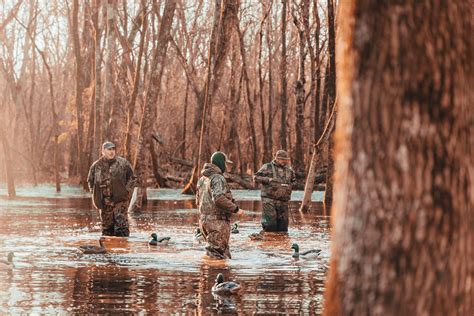How To Buy Land For Hunting
Ronan Farrow
Mar 23, 2025 · 3 min read

Table of Contents
How to Buy Land for Hunting: A Comprehensive Guide
Buying land for hunting is a significant investment, offering a lifetime of outdoor recreation and potential for appreciation. This comprehensive guide will walk you through the process, ensuring you make an informed and successful purchase.
Understanding Your Hunting Needs and Budget
Before you start searching, it's crucial to define your hunting goals and budget. Consider these key factors:
1. Type of Hunting:
- Big Game: Deer, elk, bear, etc., require larger tracts of land with diverse habitats.
- Small Game: Rabbit, squirrel, upland birds, etc., may be suitable on smaller properties.
- Waterfowl: Requires proximity to wetlands or water sources.
2. Location:
Proximity to your home is a major consideration. Factor in travel time and access to the land. Research hunting regulations and seasons in your desired location.
3. Land Size:
The necessary acreage depends on your hunting type and desired hunting pressure. Research the average size of properties in your area used for similar hunting activities.
4. Budget:
Establish a realistic budget including land purchase price, property taxes, potential improvements (access roads, food plots), and legal fees.
Finding the Right Hunting Property
Once you've defined your needs and budget, begin your search.
1. Online Resources:
- Land listing websites: These websites specialize in land sales and offer detailed property information and photos. Utilize advanced search filters to narrow your results.
- Real estate agents specializing in land: A knowledgeable agent can provide valuable insights and navigate the complexities of land purchases.
2. Networking:
- Talk to other hunters: They may have insights into available properties or know someone selling land.
- Attend hunting expos and events: These provide networking opportunities and exposure to potential land listings.
3. On-the-Ground Research:
- Visit potential properties: Assess the terrain, vegetation, wildlife signs, and access.
- Consider future development: Check for zoning restrictions and potential for neighboring development.
Due Diligence: Before You Buy
Thorough due diligence is essential to avoid potential problems.
1. Title Search and Survey:
A professional title search verifies ownership and identifies any encumbrances (liens, easements). A survey establishes the property's exact boundaries.
2. Property Access:
Ensure you have clear and legal access to the property. This might involve a deeded access, easement, or private road. Check for any access restrictions or limitations.
3. Mineral Rights:
Determine who owns the mineral rights. If they're separate from the surface rights, it could impact your hunting activities or future development.
4. Environmental Concerns:
Investigate potential environmental issues like wetlands, endangered species habitats, or contaminated soil.
Financing and Closing the Deal
1. Financing Options:
Explore financing options like conventional loans, land loans, or seller financing. Compare interest rates and terms to find the best deal.
2. Legal Counsel:
Consult with a real estate attorney to review the purchase agreement and ensure your interests are protected.
3. Closing Costs:
Understand the closing costs involved, including title insurance, recording fees, and transfer taxes.
Post-Purchase Considerations
After you've successfully purchased your hunting land, there are ongoing considerations:
1. Property Management:
Develop a plan for managing your property, including managing vegetation, controlling invasive species, and potentially creating wildlife habitats.
2. Hunting Regulations:
Stay informed about hunting regulations, seasons, and license requirements.
Buying land for hunting is a rewarding experience. By carefully following these steps and conducting thorough due diligence, you can successfully acquire the perfect hunting property and enjoy many years of hunting success. Remember to prioritize safety and responsible land management practices throughout the process.
Featured Posts
Also read the following articles
| Article Title | Date |
|---|---|
| How To Be A Better Friend Book | Mar 23, 2025 |
| How Much Oil Does A Kawasaki Fr691v Hold | Mar 23, 2025 |
| How Much Is It To Rent A Brush Hog | Mar 23, 2025 |
| How Much Power Can A 6l80e Handle | Mar 23, 2025 |
| How To Apply For Homestead Exemption In Louisiana | Mar 23, 2025 |
Latest Posts
-
How Long Do Wood Chips Last
Apr 05, 2025
-
How Long Do Vacuum Sealed Strawberries Last In The Fridge
Apr 05, 2025
-
How Long Do Troches Take To Work
Apr 05, 2025
-
How Long Do Theresa Caputo Live Shows Last
Apr 05, 2025
-
How Long Do Tball Games Last
Apr 05, 2025
Thank you for visiting our website which covers about How To Buy Land For Hunting . We hope the information provided has been useful to you. Feel free to contact us if you have any questions or need further assistance. See you next time and don't miss to bookmark.
